Following the Amherst Sept. preliminary election, six candidates are in the running for three at-large council seats in what will be the inaugural Town Council. The candidates are presented in the order in which they placed in the primaries. Some responses have been condensed for publication.
Mandi Jo Hanneke, Town Meeting Member since 2011
Motivation in running for office: “To ensure the Town Council promotes greater resident participation in the decisions being made by Town officials.”
Three agenda priorities:
- “Responsibly funding voter-approved capital projects.”
- “Creating a comprehensive plan to address Amherst’s housing needs, including affordable housing, family housing and student housing.”
- “Enacting form-based zoning, to ensure new buildings fit into the surrounding streetscape.”
Hanneke, a seven-year Amherst resident, received 2,681 votes in the preliminary election.
This will be Amherst’s first town council. How do you envision the town council operating in the town, and what will you do to create this vision?
“The Council should operate in a transparent, open and inclusive way. I will advocate for timely electronic posting of minutes and more detailed agendas so that residents can better track the Council’s operations. I will push for holding regular forums with a variety of days, times and locations so that as many residents as possible can contribute.”
What is the biggest issue facing the Town of Amherst right now?
“The biggest issue facing Amherst is how to manage its population growth in a way that doesn’t price people out, but also keeps and improves on the things we value, like open space and vibrant town centers.”
What role do you feel local colleges and universities should play in town decisions?
“UMass, Amherst College and Hampshire College are three of the largest employers in town and house a large fraction of Amherst’s population. We must be partners, working towards a vibrant, healthy town. Our officials need to openly and effectively communicate with each other and work together to achieve mutually beneficial goals, like the UMass off-campus housing office has with the Amherst Police Department. At the same time, the town must advocate for what it needs from these institutions.”
As a town council member, how would you balance the concerns of students with the concerns of permanent town residents?
“I believe the concerns of all residents should be equally important to Town Councilors, whether the residents live in Amherst year-round or not, and that Councilors should strive to address them all in as beneficial manner as possible.”
Alisa Brewer, Town Select Board Member since 2007
Motivation in running for office: “My 16 years of experience in Amherst town-wide elected office cannot readily be distilled to a reference memo, so leveraging my knowledge, skills and relationships at the Council table over the next three years will really help bridge this transition.”
Three agenda priorities:
- “A fully-developed financial plan addressing the capital needs of our children’s schools, our public safety officials, our library patrons and the thousands of users of our roads and sidewalks.”
- “Shared norms and new practices that meet our residents’ expectations for inclusive representation, while actually regularly engaging residents in deep discussions before owning the decisions we make on their behalf.”
- “Agreement about where smaller housing units could be built in locations buyers or renters want to live, with accessible, dependable public transportation (rather than building for one parking space per resident), including some kind of financial benefit to partnerships willing to build those units.”
Brewer, a 20-year Amherst resident, received 2,460 votes in the preliminary election.
This will be Amherst’s first town council. How do you envision the town council operating in the town, and what will you do to create this vision?
“The new charter lays out a great framework, but a million different small decisions will bring it to life. I know what has worked well and what hasn’t, and I fully understand both the intent and practices of Open Meeting Law, as well as the law’s limitations, in improving transparency and access.”
What is the biggest issue facing the Town of Amherst right now?
“Fear….of redeveloped buildings over two stories in downtown….that families will no longer send their children to our dilapidated elementary schools….that older residents will be forced out of their homes due to high taxes….that undergraduate students will accelerate their displacement of families from neighborhoods….that people who aren’t at the Council table won’t have their voices heard….of organizing to move things forward rather than organizing to stop things. My record shows I am not afraid of these emotions as we craft paths forward that bring people together.”
What role do you feel local colleges and universities should play in town decisions?
“We have worked hard on the town’s relationship with UMass, Amherst College and Hampshire College over many decades, with varying degrees of success depending on the issues at hand and the leaders in place. Construction and redevelopment on the campuses impacts the services the town needs to provide students, faculty and staff, from repairing roads damaged by heavy equipment to creating — but not duplicating — the food and entertainment and housing options people want in a thriving college town.”
As a town council member, how would you balance the concerns of students with the concerns of permanent town residents?
“Political decisions made at the local level do directly affect students. Local bylaws — retail marijuana locations, rental registration, keg registration, noise bylaws — are made by local politicians. Students should be part of that decision making! Staff and elected officials checking in with a handful of students once or twice a year is not sufficient. A UMass student elected to the brand new Town Council at this historic moment in Amherst history will make it clear that students belong at the decision making table while we all work together to keep Amherst a thriving community.”
James Pistrang, Town Meeting Member for 19 years
Motivation in running for office: “We are embarking on a new chapter in the political history of our town. I love Amherst and I want to contribute my skill and expertise to the deliberation and decision-making process under the new Charter.”
Three agenda priorities:
- “Process and structure – Establish the process to run the Council meetings fairly and efficiently – it must be clear how and when decisions are made. Town residents must be heard, and Council agendas, deliberations and decisions must be transparent.”
- “Large capital projects – Elementary Schools and a South Amherst Fire Station are my No. 1 priorities. A new DPW and Library renovations also need careful consideration. The Council must establish a long-range fiscally responsible plan and follow through with action.”
- “Zoning and downtown development – Change and development can be positive but it must be careful and deliberate. Form Based Zoning, including clear height and setback regulations, should be studied and implemented. There must be adequate parking to support our downtown businesses. We need to improve our inclusionary zoning bylaws to ensure that low income units are included in new apartment developments.”
Pistrang, a 30-year Amherst resident, received 2,438 votes in the preliminary election.
This will be Amherst’s first town council. How do you envision the town council operating in the town, and what will you do to create this vision?
“The operations of the Council must be transparent and understood by the community. There must be clear methods put in place to solicit and gather feedback from all segments of the population, and the Council must listen respectfully to all voices before coming to final decisions. I hope to use my expertise in developing process along with my position of trust in the community to reach this vision.”
What is the biggest issue facing the Town of Amherst right now?
“A critical issue is the management and funding of our upcoming large capital projects – especially rebuilding or replacing two aging elementary schools and building a new fire station in South Amherst. Equally important is the issue of downtown development – revisiting our zoning bylaws and ensuring that new development meets the needs and wishes of the community.”
What role do you feel local colleges and universities should play in town decisions?
“It is critical that the town and our [three institutions] of higher learning collaborate on issues of mutual concern. I support the ongoing efforts by our Town Manager to work with UMass, Amherst College and Hampshire College on ways that we can cooperate.”
As a town council member, how would you balance the concerns of students with the concerns of permanent town residents?
“College students are a significant segment of our population, and their voices should be heard along with all other residents. The outreach for public opinion should be directed to students as well as permanent town residents, and students should be made to feel welcome to participate in the process.”
Andrew Steinberg, Select Board Member and Former Member and Chairperson of Town Finance Committee
Motivation in running for office: “Amherst is a community defined by education, the home of the University of Massachusetts flagship campus and two colleges. I am committed to maintaining and improving the quality of life for long-term residents, students and visitors.”
Three agenda priorities:
- “Assure that the new form of government is transparent, open, responsive to people who rely on it, and provides quality municipal services.”
- “Create the economic and housing development that the town needs and is supported by a majority of our residents.“
- “Continue sound management and financial practices that provide essential public services, address priority road and public building needs including schools and library and assure adequate revenue without additional burden on homeowners.”
Steinberg, a 38-year Amherst resident, received 1,826 votes.
This will be Amherst’s first town council. How do you envision the town council operating in the town, and what will you do to create this vision?
“The Council must have processes that allow all voters, and people who cannot vote, to be informed and have a voice in matters that concern them. The Charter requires that there be at least two meetings each year in the five districts. Students living in Amherst, whether living off-campus or in residence halls, are in one of the districts. The meetings should occur at times when students can participate and they must have appropriate notice of the meetings.”
What is the biggest issue facing the Town of Amherst right now?
“Amherst, despite having high property taxes, does not have the resources it requires. We need economic development that will generate additional tax income for the town. It can also benefit our community by providing additional employment opportunities, housing and a wider range of restaurants and shops.”
What role do you feel local colleges and universities should play in town decisions?
“The town and the institutions are partners and must work together to address their mutual needs. For example, the University and Town of Amherst Collaborative (UTAC) is an advisory council to the town manager and chancellor to provide leadership and ideas, and build support for future joint endeavors.
As a member of the Select Board, I have worked with the Campus and Community Coalition and the Off Campus Housing Office to advance the mutual needs of students and permanent town residents. If elected, I look forward to continuing that effort.”
As a town council member, how would you balance the concerns of students with the concerns of permanent town residents?
Both students and permanent town residents are valuable parts of this community. I am accessible to everyone and often on campus and interacting with students. Students and permanent residents should vote and participate in District Meetings.
Robert (Bob) Greeney, Amherst Town Meeting member for 11 years and physics Professor at Holyoke Community College
Motivation in running for office: “[To] ensure that Amherst government remains participatory and inclusive [and to] ensure the town and town center grow in a manner that celebrates its historic New England heritage, modeling the best ideas in ecological and sustainable living, and fostering an environment that is welcoming and inviting to students, families and retirees.”
Three agenda priorities:
- “Ensure that Amherst government remains participatory and inclusive.”
- “Ensure the town and town center grow in a manner that celebrates its historic New England heritage, modeling the best ideas in ecological and sustainable living and fostering an environment that is welcoming and inviting to students, families and retirees.”
- “Creating a plan to solve the housing shortage for all demographics: low, middle income, students, etc.”
Greeney, a 24-year Amherst resident, received 1,410 votes.
This will be Amherst’s first town council. How do you envision the town council operating in the town, and what will you do to create this vision?
“Operate in a manner that encourages participation and inclusion in governing and decision making. Hold unity and community in high profile. All major decisions and policies are shaped by broad public input.”
What is the biggest issue facing the Town of Amherst right now?
“The building of large apartment complexes in the downtown to meet student housing needs. This is a bad solution for everyone. It will destroy the character of the town center. That will be a loss for students, families, visitors and most downtown businesses.”
What role do you feel local colleges and universities should play in town decisions?
“Communicate often and work together. The unique and attractive character of the town is of benefit to the colleges and the university. The academic, cultural and athletic activities of the colleges and university, and the diversity of people they bring are essential to the richness of this town.”
As a town council member, how would you balance the concerns of students with the concerns of permanent town residents?
“We are doing reasonably well on these issues. Make sure the needs of both groups are addressed and balanced appropriately.”
Robert Kusner, University of Massachusetts Mathematics Professor and Chair of DCR’s Norwottuck Rail Trail Advisory Committee since 2007
Motivation in running for office: “I bring deep experience serving the people of Amherst. I have worked – and will work – constructively and persistently to accomplish long-term goals. I’m an independent voice: I don’t owe allegiance to the virtual ‘PAC’ which has been promoting and supporting a slate of Council candidates. And I can think clearly and critically about the future of our community, within the borders of Amherst and beyond.”
If elected, what would be three priorities on your agenda?
Three agenda priorities:
- “Expand public transportation options locally and regionally.”
- “Environmentally-responsible development and affordable housing.”
- “Construction projects including neighborhood schools, a new fire station and DPW facility, improving branch libraries and preserving the Jones Library.”
Kusner, a 30-year Amherst resident, received 1,130 votes.
This will be Amherst’s first town council. How do you envision the town council operating in the town, and what will you do to create this vision?
“The Council will have local legislative authority, and will share executive authority with the appointed Town Manager. This is a very curious division of authority which will need to be worked out carefully and put into practice: it is critical that the people Amherst – and not powerful private interests – are ‘in charge’ of the town. If elected, I will work to ensure that the Manager and Town staff faithfully execute the policy and legislative acts of the Council representing the people; and more importantly, I will strive to appoint politically diverse members to the many town boards and committees.”
What is the biggest issue facing the Town of Amherst right now?
“There are at least two ways to answer this. Myopically, it’s the deep divisions over the new Town Charter and the many expensive capital projects – particularly the elementary schools – that need to be healed with consensus building. Globally, it’s the reality of climate change and human impact on the environment – the decisions we make about how we live in Amherst integrate up over the whole planet to global consequence – as always, I will work toward the most environmentally-friendly outcomes.”
What role do you feel local colleges and universities should play in town decisions?
“[All of the institutions] have a stake in making the Amherst area a great place for us all to live. They provide cultural richness and bring a great deal of creative knowledge and energy from faculty, students and staff alike. Unlike the other institutions, UMass is a political entity unto itself… UMass is the region’s largest employer, and so is responsible for much of the economic activity in the area, particularly the housing of students, staff and faculty, as well as other public services, such as the education of their children. Also, in a very concrete way, the whole region relies on UMass through UMass Transit – and on its many wonderful student drivers – to provide for the critical public transit needs of students and others alike; we need to make this model transportation system of the future of our planet, and UMass can take the lead in doing so.”
As a town council member, how would you balance the concerns of students with the concerns of permanent town residents?
“We’re all here temporarily – some longer than others – and so anyone with a legitimate concern deserves careful consideration. We all have to live together and respect each other, and I would expect students and longer-term residents to respect that.”
Kathrine Esten can be reached at [email protected].

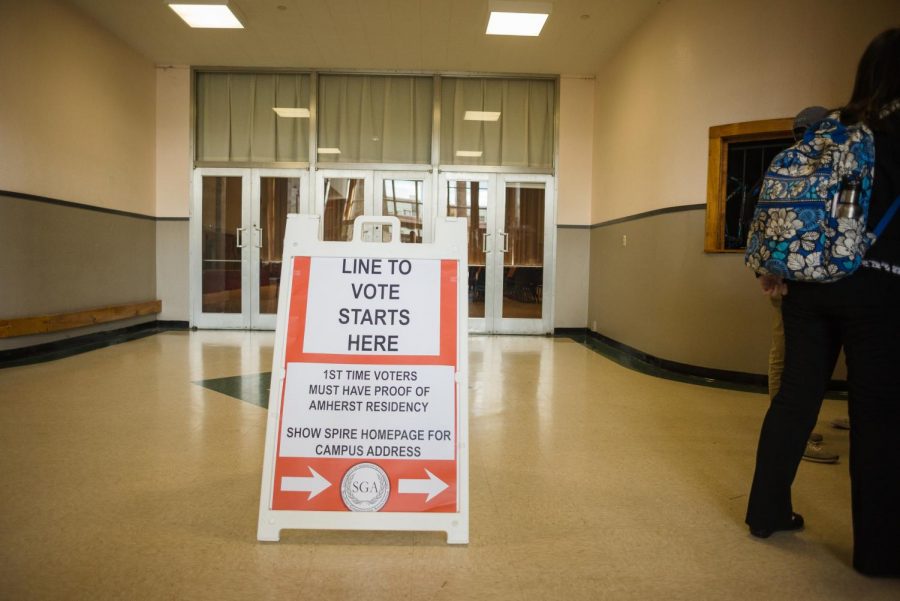







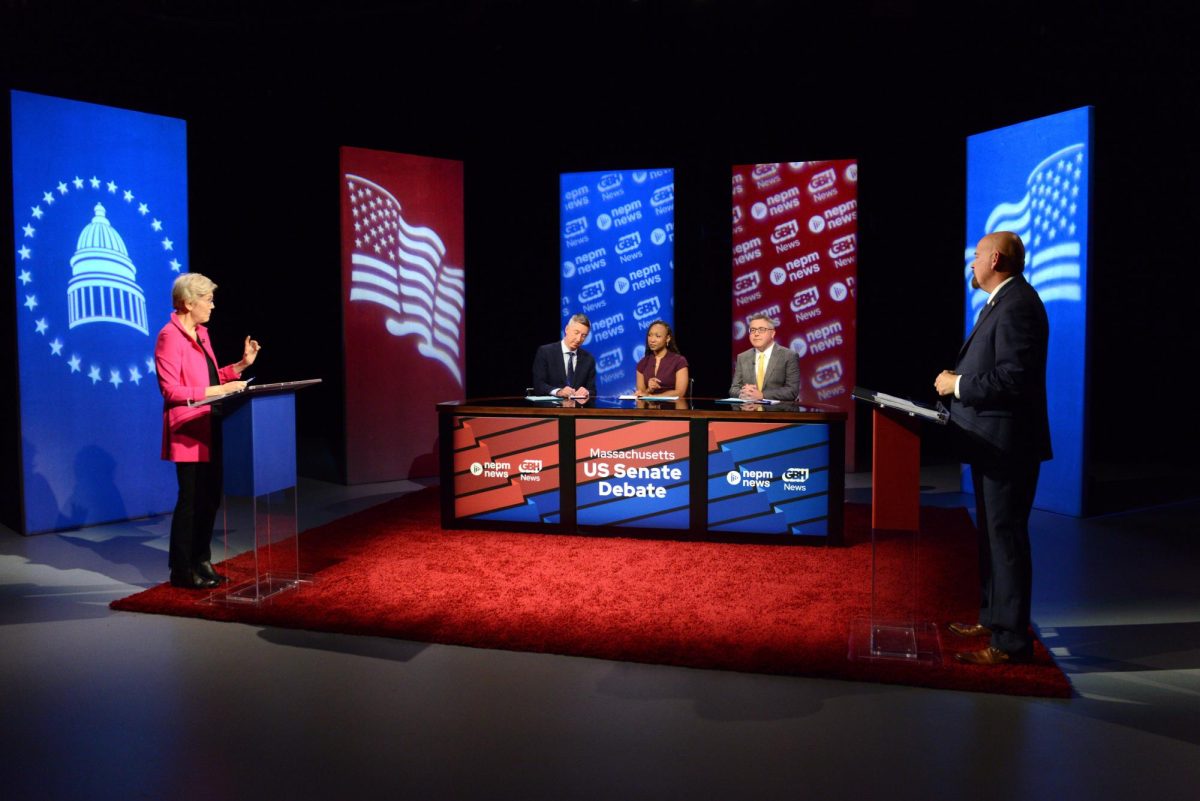
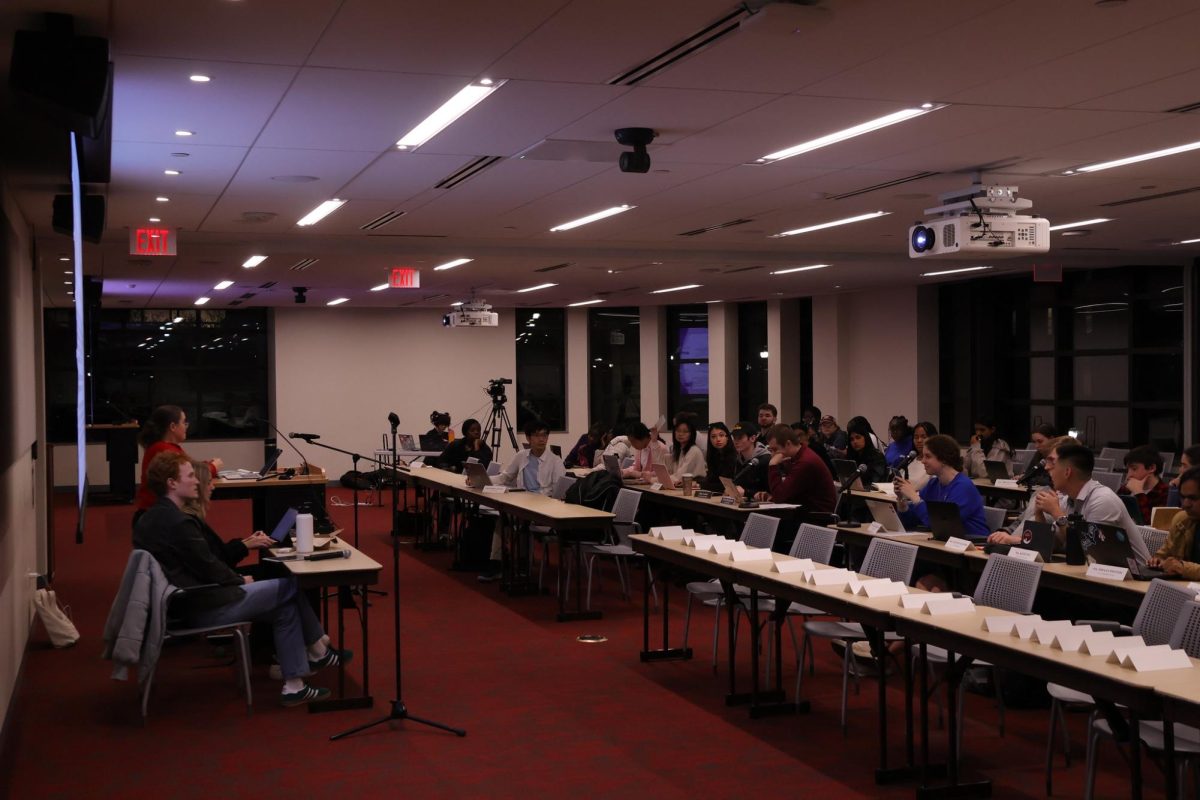
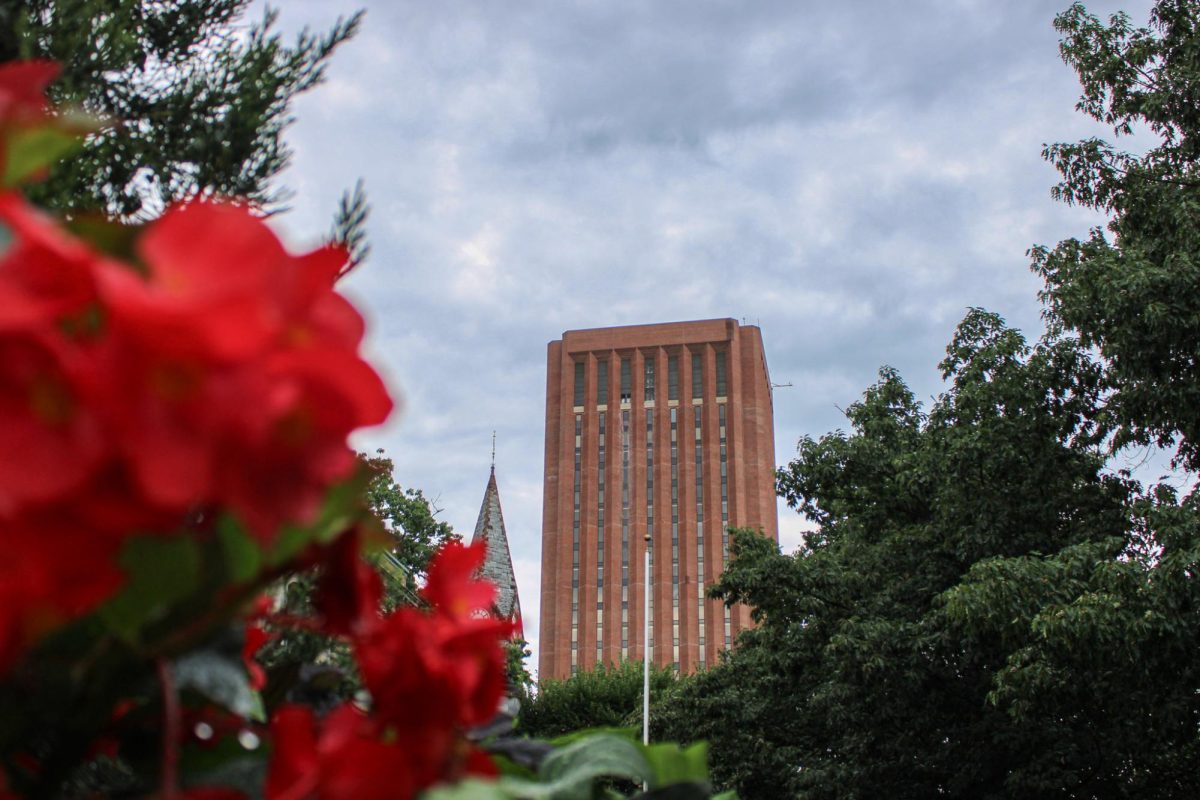


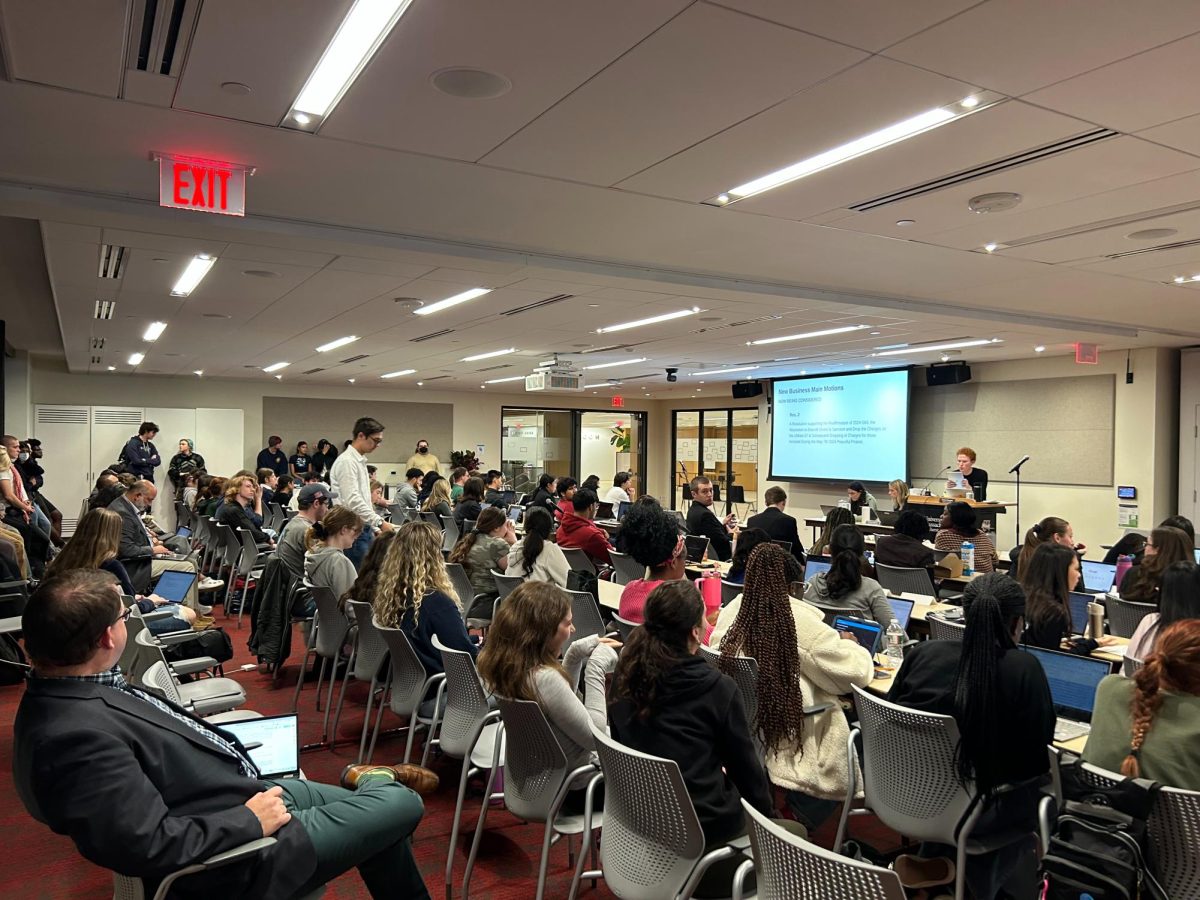






Amy • Oct 8, 2018 at 11:22 pm
Peter Vickery..an attorney who defends landlords(instead of tenets who are regularly exploited by landlords) and is running for town council . and has the maturity to say ” you lose”
With your hard work maybe you will get a few more students to care! Go Amherst Town council; the upper echleon of power, politics and importance!!
Steve Schreiber • Oct 4, 2018 at 3:34 pm
AMy: As Calvin Coolidge famously quipped… “You lose”
Peter Vickery • Oct 4, 2018 at 3:03 pm
Sorry, AMy, I’m commenting too! I have noticed that quite a few students do care about town politics, and I hope those numbers increase in the years ahead.
AMy • Oct 4, 2018 at 12:30 pm
I predict that I am going to be the only person commenting on this story ….because nobody cares about the town of amherst politics.